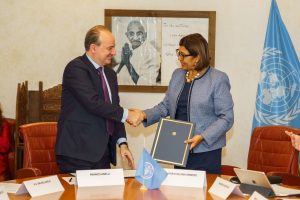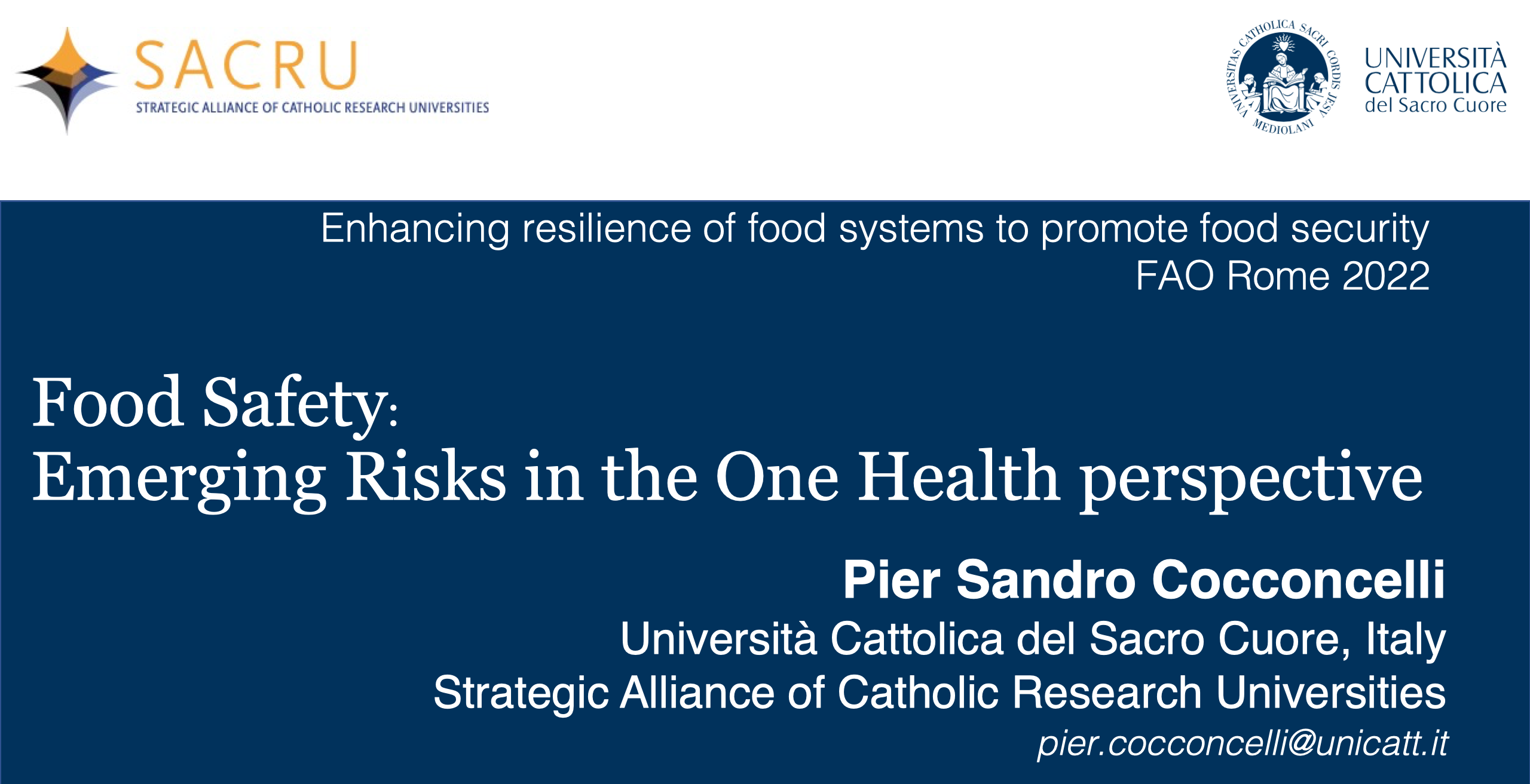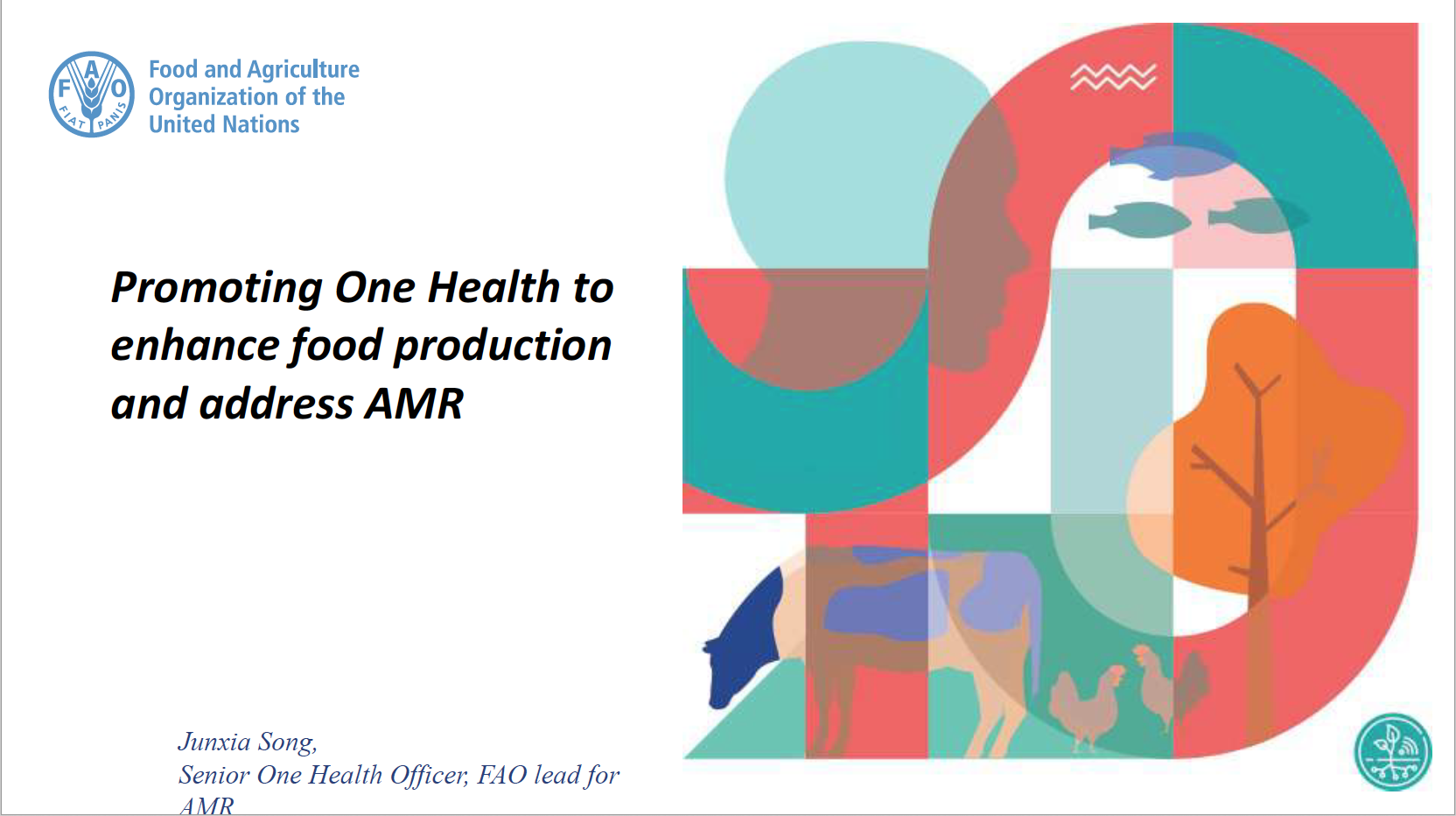United for One Health: FAO and SACRU explore means for collaboration to tackle both food security and health threats

FAO, the Food and Agriculture Agency of the United Nations, and SACRU, an international network of Catholic universities, have signed a “letter of intent” to combine the multidisciplinary expertise of their experts in food security, nutrition, and sustainable and resilient food systems and to raise awareness of good One Health policies
October 28, Rome – The Food and Agriculture Organization of the United Nations (FAO) and the Strategic Alliance of Catholic Research Universities (SACRU) have signed a bilateral collaboration agreement to address the planet’s food and health inequalities. The signing of the “letter of intent” (LoI) took place at the event “Enhancing resilience of food systems to promote food security,” sponsored by the two institutions on Thursday, Oct. 27, at FAO headquarters in Rome.
The agreement was signed by FAO Deputy Director-General Maria Helena Semedo and SACRU Vice President Professor Franco Anelli, Rector of the Università Cattolica, which hosts the SACRU Secretariat. The agreement embodies an integral and sustainable health approach that aims to reduce malnutrition by considering the food system as a whole and work towards important One Health outcomes: to safeguard human, animal, plant and ecosystems health. COVID 19 has all too clearly demonstrated the need to boost a One Health approach to global health threats. Antimicrobial resistance, food safety, and endemic zoonosis such as rabies are other areas of concern to be addressed holistically through One Health and that requires a strong agrifood systems lens.
The LoI between FAO and SACRU was established to facilitate the achievement of Sustainable Development Goals two, three and ten of the UN 2030 Agenda (Zero Hunger, Health and Well-Being, and Reducing Inequalities) and is in line with the direction recently taken by the International Community. Building on FAO’s new One Health Priority Programme area, last October 17, the new One Health Joint Plan of Action was launched by the Quadripartite – FAO, United Nations Environment Program (Unep), World Health Organization (Who), and World Organization for Animal Health (Woah). The document emphasizes the importance of multisectoral synergy among multiple stakeholders, and the collaboration between FAO and SACRU is a concrete example of this direction.
FAO leads the United Nations’ efforts to protect the food supply chain and prevent diseases from contaminated food, which affect 600 million people worldwide each year. SACRU is a network composed of eight Catholic universities from four continents (Australian Catholic University, Boston College, Universitat Ramon Llull, Pontificia Universidad Católica de Chile, Pontifícia Universidade Católica do Rio de Janeiro, Sophia University, Universidade Catolica Portuguesa, Università Cattolica del Sacro Cuore) that cooperate to promote global education for the common good and excellent interdisciplinary research.
FAO and SACRU will explore collaboration on Global Food Security and the One Health approach to integrate different expertise to build capacity in food security, nutrition, and sustainable and resilient food systems at national and regional levels, and to raise awareness of good One Health policies by identifying successful case studies and sharing best practices. In this regard, special attention will be paid to developing countries.
The ceremony was also attended by FAO Assistant Director-General Dr. Maurizio Martina, Italy’s Permanent Representative to FAO Ambassador Bruno Archi, Università Cattolica Vice Rector and Secretary General of SACRU Professor Pier Sandro Cocconcelli, who gave a talk on “Food Safety: Emerging Risks in the One-Health Perspective,” and FAO Senior One-Health Officer and Lead for AMR Junxia Song, who spoke on “Promoting One-Health to enhance food production and address AMR.” A larger delegation of students, Ph.D. candidates, and faculty members from SACRU eight universities participated remotely.


